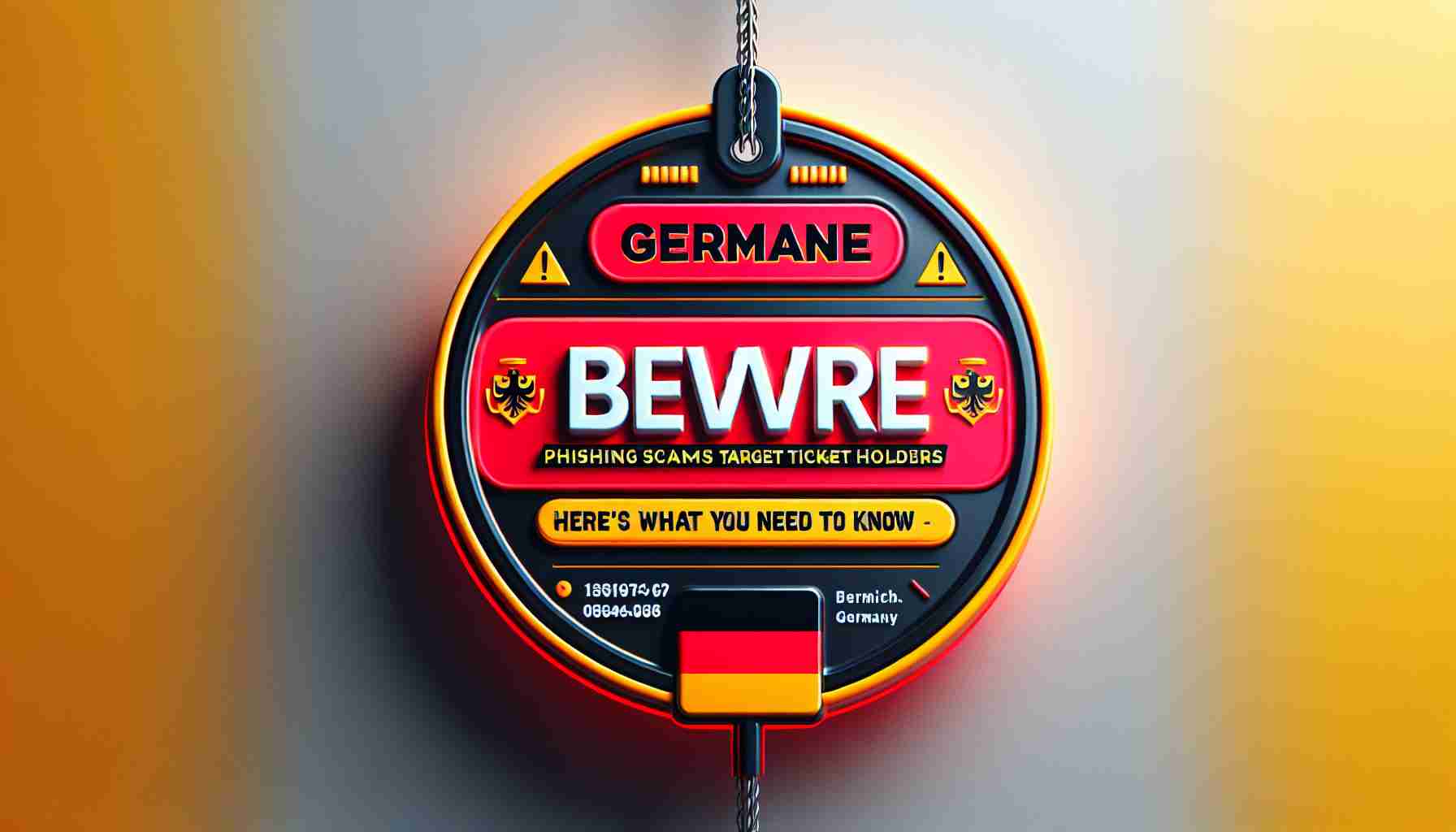- Scammers are exploiting the popularity of Germany’s public transport tickets through phishing emails.
- Phishing attempts may include enticing subject lines, like refund notifications that are actually fraudulent.
- Never provide personal or financial information in response to unsolicited emails.
- Delete suspicious emails immediately or move them to your spam folder.
- Verify any refund claims directly with your bank or the legitimate service provider.
- Trust your instincts—avoid clicking links in unexpected communications.
- Report any suspicious emails or communications to your bank promptly.
As the popularity of Germany’s public transport tickets rises, so do the clever tactics of scammers. Recent warnings highlight an alarming rise in phishing emails aimed at unsuspecting Deutschlandticket holders, urging them to stay vigilant.
Imagine receiving an email with the enticing subject line: “Deutschlandticket: Confirm your €58 Refund Now!” It sounds promising, but this is a classic phishing attempt. The emails falsely claim that recipients are eligible for a refund due to a supposed double charge from September. Rather than celebrating a windfall, you might be opening the door to fraud.
The catch? The email encourages you to select a refund option, leading you down a path where you’ll be prompted to enter your bank details. If you do, the criminals will have direct access to your financial information. To avoid falling victim, delete such emails immediately or send them to your spam folder. Instead, check your bank statements carefully for any discrepancies.
Authorities, including the Federal Office for Information Security, stress that genuine organizations will never request sensitive information via email. If something feels off, trust your instincts—don’t click on any links and report suspicious communications to your bank right away.
In a world where scammers are ever-present, the key takeaway is clear: always stay alert and skeptical when it comes to unexpected emails, especially those promising refunds. Your security depends on it!
Stay Alert: Protect Yourself from Germany’s Public Transport Phishing Scams
As the popularity of Germany’s public transport tickets, particularly the Deutschlandticket, continues to rise, so does the sophistication of scammers targeting unsuspecting holders. Recent concerns highlight a significant surge in phishing emails, emphasizing the crucial need for vigilance among recipients.
Latest Insights into the Phishing Landscape
1. Characteristics of Current Phishing Scams: Phishing attempts have evolved, using social engineering tactics that include creating a sense of urgency or offering attractive bonuses, such as refunds. Current scammers utilize official-looking communications to lure victims into providing sensitive financial information.
2. Market Insights: The public transport sector’s increasing digitization has made it a ripe target for cybercriminals. According to recent cybersecurity reports, rail and public transport sectors in major cities have seen an upsurge in phishing incidents, reflecting a pattern of attackers exploiting current events for malicious intents.
3. Legal and Regulatory Response: Authorities are ramping up security protocols in the transportation sector. Germany’s Federal Office for Information Security has initiated additional public awareness campaigns to educate users about identifying phishing attempts. Moreover, there are ongoing discussions regarding stricter regulations around email security and public information disclosure.
Important Questions Related to the Issue
1. What steps can I take to protect myself from phishing emails?
To safeguard against phishing emails, always verify the sender’s email address and look for any signs of poor spelling or grammar. Avoid clicking on links or downloading attachments from unverified sources. Furthermore, enable two-factor authentication on your accounts to add an additional layer of security.
2. How can I report phishing attempts effectively?
If you encounter a phishing email, do not engage with it. Instead, forward the email to your email provider and report it to your bank or relevant authorities like the Federal Office for Information Security. They can provide guidance and work on protective measures against such scams.
3. What are the consequences of falling for a phishing scam?
If you become a victim of a phishing scam, the consequences can be severe. You may suffer financial losses, or worse, identity theft, as scammers may gain access to your personal information. This can lead to unauthorized transactions or the creation of accounts in your name, which can take considerable time and effort to resolve.
Recommendations for Future Protection
– Stay Informed: Keep up to date with alerts from your bank and financial institutions regarding new scams.
– Educate Yourself and Others: Sharing knowledge about phishing scams can create a more informed user base.
– Utilize Antivirus Software: Updated security software can help detect malicious attempts before they reach you.
For more information about preventing scams and understanding cybersecurity risks, visit BSI (Federal Office for Information Security).
